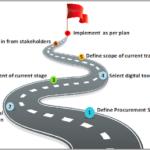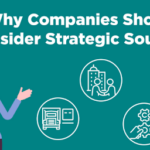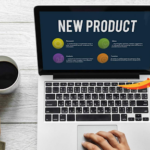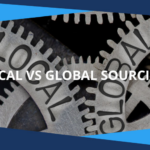In the dynamic world of global product sourcing, the success of several operations lies in the strength of the supplier relationships. These relations evolve into mutually beneficial partnerships that give profit in the long run. Whether you’re part of an agency, or an established company, navigating the supplier interfaces is an essential skill.
Strong relationships with your product sourcing agency yield various benefits. However, building and maintaining these connections requires dedication. Here are some actionable tips to guide you in forging supplier relationships that will serve as assets to your sourcing venture!
-
Establish Clear Communication Channels
Effective communication is the axis around which every set of operational wheels turns, and a supplier management system is no exception. The unclear communication leads to misaligned expectations, unnecessary delays, and at the very worst, the complete dissolution of your partnership.
The first step for clear communication is scheduled check-ins. The worst nightmare for a product sourcing agent is a ‘hard to reach’ client when some issue comes up. Implementing a plan doesn’t mean that everything should go to script. However, a scheduled plan in advance works as a catalyst to streamline the process.
Finally, don’t assume it is a ‘one-size-fits-all’ for all. Just because a specific communication style has served you well with one supplier, it might not work for another. Find out how they best like to communicate, and go from there.
-
Cultivate a Culture of Transparency
Secondly, transparency should be defined as an honest and open sharing of the state of your business. No matter your flavor, your suppliers should know what hurdles you are trying to clear. You should have an idea of their pain points, too. If you are aware of when business might get slow for them, you might be less contentious when an order arrives a few days late.
Transparency breeds trust – and that’s a sound bedrock for making better decisions together. Give feedback on your supplier’s performance so they have an opportunity for improvements on your next project. Share market insights that might affect your market so you can enjoy greater business. This open-dialogue approach will enable you to develop a shared vision and align the interests of the two companies so both benefit from mutual growth.
-
Prioritize Fair Dealings
Business has always operated on the concept of fairness. This means recognizing that both companies have to make a fair profit from these projects and that this doesn’t always mean the lowest price. Indeed, the lowest price might be a loss for the supplier. You can’t sustain losses for very long, and expect a supplier to stick around.
Make sure your payment terms are fair and you’re living up to other obligations in your contract. On the other hand, sourcing manufacturers are liable to deliver you the quality goods as ordered and in the time frame they committed. This will grow equity and goodwill in your relationship, which you can cash in when problems occur.
-
Invest in Relationship Building
A human touch in a digital age can make a world of difference. Attend supplier events, visit their premises, and get to know the product development experts. These personal interactions can nourish a deeper connection that transcends professionalism.
When suppliers feel valued beyond their provision of goods, they are more likely to go the extra mile. Consider cultivating these relationships through small gestures. Send them holiday greetings or offer memberships to industry organizations that benefit their business.
-
Develop a Transparent Procurement Process
Suppliers appreciate predictability, as it allows them to plan their product development services accordingly. Designating a transparent procurement process involves delineating your product requirements, deadlines, and quality standards well in advance.
Utilize procurement management software to keep your suppliers in the loop on the status of orders. You can incorporate technology to support visibility in reducing lead time variability and unexpected hurdles. It contributes to a smoother and more efficient relationship with sourcing agencies.
-
Leverage Performance Metrics
Key performance indicators (KPIs) enable you to measure a supplier’s performance over time. A data-driven approach lets you and the supplier see your respective strengths and areas for development. KPIs may include on-time delivery rates, product defect percentages, responsiveness, innovation, and so on.
In your regular supplier meet-ups, go over what the KPIs are saying, and also be prepared to offer constructive feedback. In reverse, recognize and reward suppliers who are consistently over-performing. This dynamism keeps the relationship growing and focused on excellence.
-
Be Part of the Supplier’s Innovation Journey
Your suppliers may have insights and innovations that apply to your business. Involve them in product development, touch base for their input on sustainability measures, and consult on profit-saving strategies.
When you look at them earlier on, you’re nurturing a more collaborative environment. This doesn’t just lead to innovative outcomes, it also leads to true collaborative approaches to the final product, where product development agencies feel truly vested in the outcome.
-
Weather the Storm Together
Every business encounters rough patches. When these inevitable times come, be upfront with your suppliers and work together to find solutions. This might involve adjusting orders, extending payment terms, or temporarily shifting focus to alternate products or markets.
Remember, a supplier who sticks with you through difficult times is worth keeping. Loyalty is a two-way street, and by standing by your suppliers when they need it, you reinforce the relationship for the future.
Bottom Line
Building strong supplier relationships demands ongoing effort, expertise, and empathy. By nurturing these partnerships with care and intention, your sourcing operations will have the essential strength and resilience in the face of unpredictable market forces. Investment in supplier relations is an investment in the very fabric of your sourcing success.








